QuestionMy daughter has a Russian tortoise, he has stopped eating for several days. He was eating pellets and fruit. He stopped eating the pellets then the fruit. I have followed all care in the info from PetSmart. I noticed about soaking from one of the questions from you and the bedding. We live in central Florida. He stays in a large glass tank. I have a heat lamp and daylight lamp specifically purchased for the tank. She is very attached to him. Please help. I can send a picture of him if you would like........thanks so much.
AnswerHi,
I'm afraid you were given poor advice from Petsmart. Unfortunately the information given in pet stores tends to be mostly wrong. I'll give you information on proper setup, and then if you have any questions just ask.
Enclosure: Tortoises need plenty of room, and good air circulation. They don't do well in tanks because the glass makes it hard to provide a good temperature gradient, and I suspect that the tank you were sold is much too small. Since you live in Florida, I would really recommend considering an outdoor enclosure, as Russians do really well outside and you could probably keep him outdoors most or all of the year with shelter. Indoors, something large and roomy (minimum 4 x 2, but I prefer at least 3 x 6) so the tortoise can get adequate exercise.
Substrate: I use a mix of coir (bed-a-beast, ecoearth) and playsand, and keep it slightly damp. This will help to prevent dehydration from the basking light. Also there should be a shallow dish of water available that's big enough for the tortoise to get into completely. Soaks in lukewarm, shallow water a couple of times a week are also a good idea.
Heat/lighting: I use a combination heat/UVB bulb (T-Rex or Zoomed) rather than two separate bulbs. The combo bulbs have better UVB, which is vital for calcium metabolism. If the tortoise is outside at least a couple of hours a day, you don't need the UVB bulb. There should be a basking spot (under the bulb) of 90-95 degrees, and a cooler area of 70-75 degrees.
Diet: Leafy greens and weeds. No pellets, fruit, or veggies (you see why the care information you were given was bad!). Pellets that are supposedly "formulated for tortoises" are really full of ingredients they shouldn't have. Greens can include turnip, mustard, collards, kale, spring mix, romaine (not too much lettuce), etc. You can also feed weeds (weeds are best) like dandelion, chicory, chickweed, plantain, sow thistle, hawkbit, etc.; plus grape and mulberry leaves, nasturtium, hibiscus, rose petals, viola, abutilon, prickly pear, etc. Variety is important, so don't stick to any one food. You can also plant an outdoor enclosure so that the tortoise can graze naturally.
Most likely if you make a few changes the tortoise will start eating again. If he doesn't, I would take him to a herp (reptile) vet for an exam, and bring a poop sample so they can check for parasites. Pet store tortoises are wild caught and imported to the U.S. under very stressful conditions, so parasites are common.
Here's some links that may also help, and again, please post back if you have any questions at all.
www.russiantortoise.org (best care information online)
http://pets.groups.yahoo.com/group/RussianTortoise/ (discussion group for Russian tortoise owners)
www.carolinapetsupply.com (carries the combo heat/UVB bulbs, weed seeds, and other things for turtles and tortoises; he keeps tortoises and anything he sells is good for them)

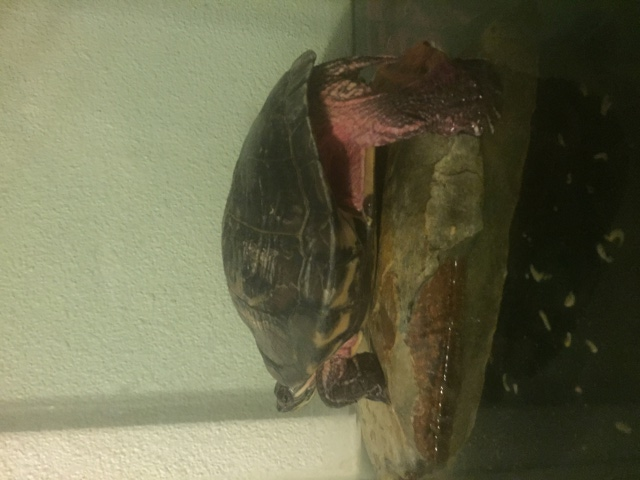 Skin infection
Question
Dudley
I think my 20 year old red ear
Skin infection
Question
Dudley
I think my 20 year old red ear
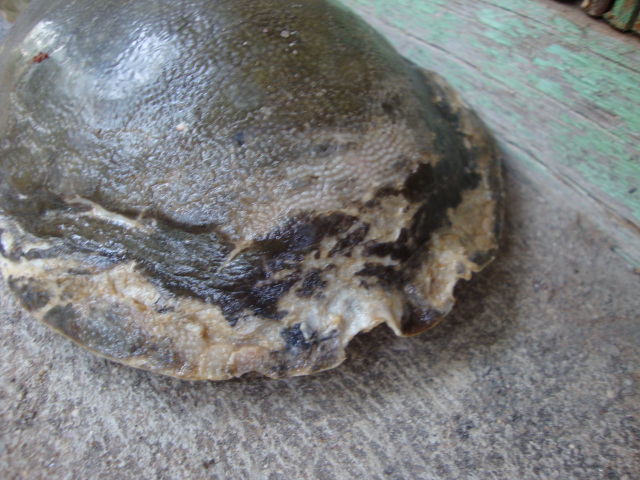 about the health of my tortoise
Question
tortoise shell
hi iam sasikiran.actualy
about the health of my tortoise
Question
tortoise shell
hi iam sasikiran.actualy
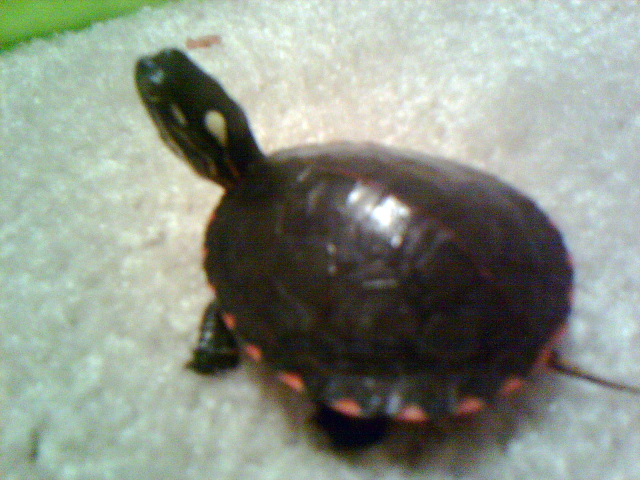 Could my turtle have an eye infection?
QuestionQUESTION: Me and my friend found this little tu
Could my turtle have an eye infection?
QuestionQUESTION: Me and my friend found this little tu
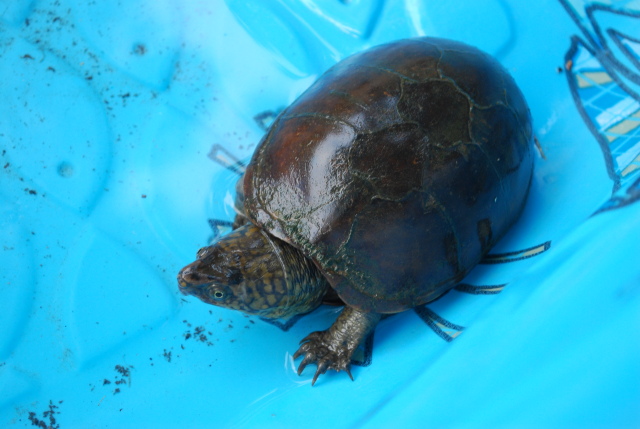 What is my turtle?
QuestionNew Turtle
QUESTION: I have a turtle tha
What is my turtle?
QuestionNew Turtle
QUESTION: I have a turtle tha
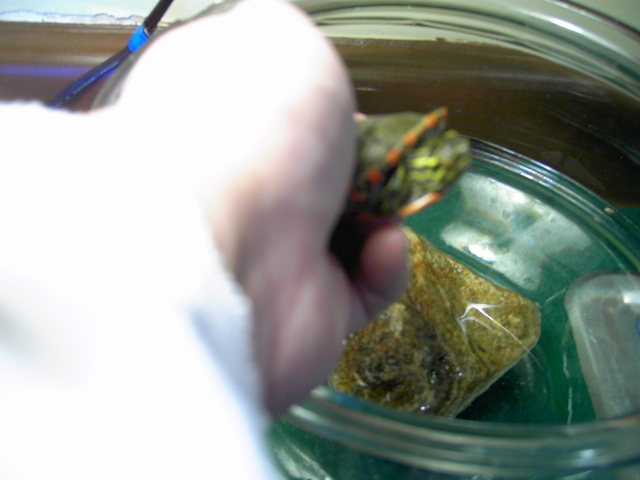 painted turtle,yellow/green eyes
Question
mable eyes
We have two painted turtles,
painted turtle,yellow/green eyes
Question
mable eyes
We have two painted turtles,